#Digitization in The Automotive Industry
Explore tagged Tumblr posts
Text
From Bits to Bytes: Digitization in The Automotive Industry - Global Brands Magazine
Digitization is driving a transformation in the automotive industry, changing all phases of the business from design and manufacture to sales and customer.
#Digitization in The Automotive Industry#Automotive industry#3D printing technology#computer-aided design#(CAD) software#Advanced driver-assistance systems#Electric vehicles
0 notes
Text
How WhistlinDiesel Revolutionized Car Reviews
With automotive content, traditional car reviews have long followed a familiar formula: polished shots of vehicles, technical specifications, and reserved commentary on performance. However, with the rise of platforms like YouTube and social media, this formula has been challenged. One creator who stands out in this shift is WhistlinDiesel. Known for his unconventional and often extreme approach,…
#audience engagement#authentic reviews#authenticity#Automotive#automotive brands#automotive creator#automotive industry#automotive journalism#automotive trends#Car Culture#car enthusiasts#car reviews#cars#Cody Detwiler#Community#content creator#content evolution#content strategy#destruction testing#digital content#Durability#entertainment#extreme content#extreme testing#influence#innovation#new media#off-road#online reviews#raw reviews
3 notes
·
View notes
Text
Digital Marketing Companies in Mysore
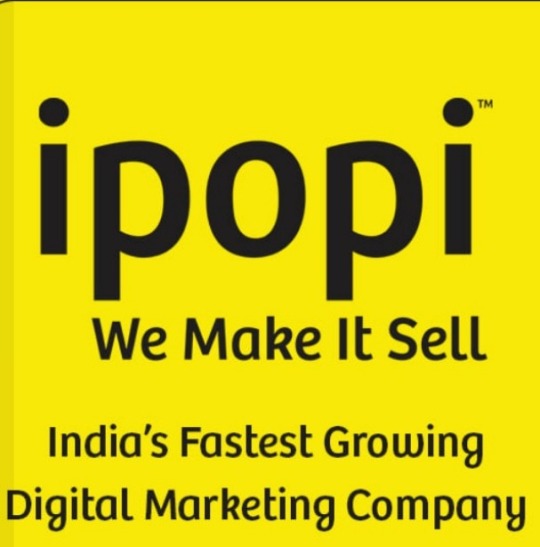
One of the Best Digital Marketing Service Provider in the entire Mysore City.
Visit Our Website Today and Get in Touch with Us!!!
Contact Us for more info - [email protected] | +91 963 272 4344
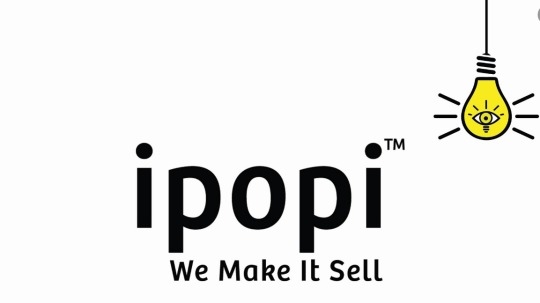
#ipopi ads#digitalmarketing#digital marketing#top digital marketing agencies#top digital marketing services#digitalization#leading digital marketing company in mysore#leading digital marketing agency in mysore#leading social media marketing company in mysore#top social media marketing strategy#top digital marketing company in mysore#top digital marketing agency in mysore#top ad agency in mysore#top advertising agency in mysore#top digital marketers in india#digital marketing for automotive industry#digital media#best digital marketing company in mysore#best social media marketing company in mysore#best digital marketing agency in mysore#best digital marketing services#google ads#online marketing#digital marketing in mysore#automotive industry#internet marketing#facebook ads#social media marketing#social media management#social media
6 notes
·
View notes
Text



🚘🌐 From self-driving cars to connected vehicles, digital technologies are transforming the way we drive
Discover how they're driving change in the automotive industry.
2 notes
·
View notes
Text
How Digital Twins are Shaping the Future of Autonomous Vehicles
Introduction The digital twin in automotive industry is not only transforming conventional vehicles but is also a pivotal enabler in the development of autonomous vehicles (AVs). By providing a virtual environment for rigorous testing and validation, digital twins are accelerating the evolution of AV technologies while ensuring safety and efficiency.
Virtual Testing and Simulation One of the most significant contributions of digital twins to autonomous vehicle development is their ability to simulate real-world driving conditions. Manufacturers can test AV algorithms in virtual environments that replicate traffic scenarios, weather patterns, and road conditions. This reduces the reliance on physical testing, saving time and resources while enhancing safety.
Refining Sensor Integration Digital twins also facilitate the integration and optimization of advanced sensors, such as LiDAR and radar, which are critical for autonomous navigation. Virtual models can test sensor placement and performance, ensuring seamless communication between systems for accurate decision-making on the road.
Ensuring Regulatory Compliance As governments worldwide establish safety standards for AVs, digital twin in automotive industry offers a reliable method for compliance verification. By demonstrating the performance of autonomous systems in various scenarios, manufacturers can meet regulatory requirements and gain approval more efficiently.
Conclusion The digital twin in automotive industry is a cornerstone technology in the journey toward autonomous mobility. By enabling detailed simulations, enhancing sensor performance, and ensuring compliance, digital twins are paving the way for a safer and more efficient autonomous driving future.
For more information please contact
0 notes
Text
STMicroelectronics N.V. Stock Price Forecast: Is It the Right Time to Invest?
Explore the stock price forecasts, and investment insights for STMicroelectronics N.V. Discover why this semiconductor giant offers #STMicroelectronics #STM #dividendyield #investment #stockmarket #stockpriceforecast #stockgrowth #dividendstock #NyseSTM
STMicroelectronics N.V. is one of the world’s largest semiconductor companies. They design, develop, manufacture, and sell semiconductor products. The company operates through three main segments: Automotive and Discrete Group, Analog, MEMS and Sensors Group, and Microcontrollers and Digital ICs Group. They have over 50,000 employees, with more than 9,500 in R&D, and 14 main manufacturing sites…
#Analog MEMS Sensors#Automotive and Discrete Group#Dividend policy#Financial performance#Investment#Investment Insights#Market Analysis#Microcontrollers and Digital ICs#Semiconductor industry#STMicroelectronics N.V.#Stock Forecast#Stock Insights#Stock Price Forecast
0 notes
Text
Top Trends Shaping OEM Aftermarket Strategies in the Future
Original Equipment Manufacturers (OEMs) have gained tremendously with the integration of modern technology in aftermarket operations. Aftermarket has seen frequent changes over the years, especially in the management of inventory and warranty, the bringing in of creative manuals, the implementation of an efficient knowledge base system, and so on. In an ever-changing and evolving market, OEMS…
#aftermarket#aftermarket future#aftermarket industry#aftermarket supply chain#aftermarket trends#automotive aftermarket#digital transformation#equipment manufacturers#future of aftermarket#oem#oem aftermarket
0 notes
Text
Building Achievable Digital Twin Strategies in the Automotive Industry | Vijayakumar Kempuraj
Building Achievable Digital Twin Strategies in the Automotive Industry #Industry4 #connectedvehicle #Ford #DigitalTwin #DigitalTwinTechnology #automotiveindustry #augmentedreality
How to build achievable Digital Twin Strategies in Automotive Industry with Vijayakumar Kempuraj? He got over 14+ years of experience in the domain of Automotive-software solutions and services, Digital products and services for creating digital twin of end-to-end process. He is also pursuing his PhD in SRM IST Chennai. He is also leading agile software engineering team for delivering vehicle…
0 notes
Text
Deutsche Telekom turns to AI to support legal departments
New Post has been published on https://thedigitalinsider.com/deutsche-telekom-turns-to-ai-to-support-legal-departments/
Deutsche Telekom turns to AI to support legal departments
.pp-multiple-authors-boxes-wrapper display:none; img width:100%;
Deutsche Telekom, one of Europe’s leading telecoms companies, has unveiled a new AI-powered software-as-a-service solution called “Law Monitor” aimed at supporting corporate legal departments in quickly identifying changes to national and international laws.
In an era of increasingly complex regulatory environments, companies across all industries are struggling to keep up with the constant stream of legal updates. The Law Monitor seeks to address this challenge by automating the time-consuming process of monitoring legislative changes.
Dr Ferri Abolhassan, CEO of T-Systems and member of the Board of Management of Deutsche Telekom AG, said: “AI has come to stay. At T-Systems, we see ourselves as consultants for our customers and need to make AI tangible. The Law Monitor is a good example of this.”
The AI-based model scans legal texts from the German Federal Law Gazette, using advanced algorithms to recognise and structure information from text, images, and tables. This processed data is then presented to legal department employees via an intuitive dashboard, allowing them to quickly identify relevant changes.
Abolhassan highlighted a recent example from the automotive industry to illustrate the tool’s potential impact: “Since 7 July, for example, binding regulations have applied throughout the EU for the integration of specific assistance systems, such as emergency braking and lane departure warning systems in new cars. Law Monitor helps car manufacturers to make these regulations transparent in real time in order to adapt production at an early stage.”
The need for such a tool is clear. Companies are facing an unprecedented density of regulations both in Germany and worldwide. For instance, the European packaging industry recently had to adapt to new requirements mandating that disposable plastic bottles be produced with attached lids to reduce plastic waste.
While the Law Monitor currently focuses on legislative changes in Germany, Deutsche Telekom plans to expand its coverage to 19 additional countries – including specific states in the US – in the coming months. This expansion will allow the tool to display legal changes from different countries in a single interface, setting it apart from existing competing products.
The solution is designed to be applicable across various industries and even the public sector. Deutsche Telekom reports that one customer from the automotive industry is already using the Law Monitor, with others from both the automotive and packaging industries expressing strong interest.
By automating the process of monitoring legal changes, the Law Monitor not only saves time but also allows legal professionals to focus on more value-added tasks such as analysing the content and assessing the context of these changes.
Deutsche Telekom’s initiative demonstrates how AI can be leveraged to address real-world challenges in the legal and compliance space, potentially revolutionising how companies stay informed about and adapt to legislative changes.
(Photo by Conny Schneider)
See also: Tech executives confident in AI skills, but adoption barriers persist
Want to learn more about AI and big data from industry leaders? Check out AI & Big Data Expo taking place in Amsterdam, California, and London. The comprehensive event is co-located with other leading events including Intelligent Automation Conference, BlockX, Digital Transformation Week, and Cyber Security & Cloud Expo.
Explore other upcoming enterprise technology events and webinars powered by TechForge here.
Tags: ai, applications, deutsche telekom, law, law monitor, legal, telecommunications, telecoms
#ai#ai & big data expo#ai skills#AI-powered#Algorithms#amp#applications#Articles#Artificial Intelligence#automation#automotive#automotive industry#Big Data#board#Cars#CEO#challenge#Cloud#Companies#compliance#comprehensive#conference#content#cyber#cyber security#dashboard#data#deutsche telekom#Digital Transformation#display
0 notes
Text
Adapting Your Dealership’s Strategy for the Post-COVID Era
Introduction Navigating the post-COVID landscape requires strategic leadership from senior management in the automotive industry. As consumer behaviors evolve rapidly, adapting your dealership’s strategy becomes crucial for sustained success. Understanding Consumer Shifts Digital Transformation: Embrace digital tools and virtual solutions to cater to the new preferences of tech-savvy…
View On WordPress
#consumer behavior shifts.#dealership strategy adaptation#digital transformation in car sales#faith-based sales training#IDEAS Sales System#Post-COVID automotive industry#senior management leadership
0 notes
Text
#global automotive industry#Digital transformation in the automotive industry#Digital Transformation in Automotive manufacturing
0 notes
Text
How Many People Use Online Platforms to Buy Cars?
In recent years, the automotive industry has seen a significant shift in how consumers purchase vehicles. Online platforms have revolutionised the car-buying process, offering convenience, a wider selection, and competitive pricing. But how many people use online platforms to buy cars? Let’s dive into the statistics and explore the impact of this digital transformation. Statistics: A survey…

View On WordPress
#AR car buying#automotive industry#Autotrader#car buying convenience#car buying data#car buying demographics#car buying growth#car buying market value#car buying online#car buying process#car buying reports#car buying revolution#car buying statistics#car buying surveys#car buying tech#car buying tools#car buying transparency#car buying trends#car dealerships#car market#car purchase#car purchase stats#car reviews#car sales#car-buying apps#Cars.com#Carvana#consumer trends#contactless car buying#digital auto sales
0 notes
Text
Benefits of Digital Marketing for Automotive Businesses
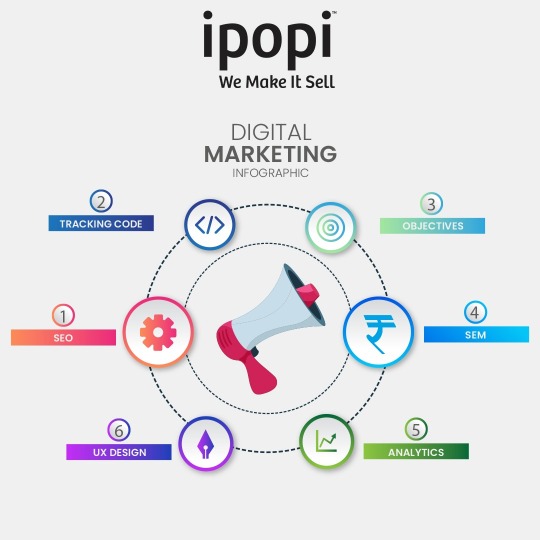
Digital marketing plays a very vital role in the automotive industry. The automotive industry often uses digital ads and has reached a new height in terms of success. In a nutshell, this can be said to be a meaningful process which is undeniably an integral part of a healthy business process.
For B2B automotive businesses to succeed, digital marketing is essential.
For Effective and Efficient Digital Marketing Services and for Social Media Marketing Services, Visit Us!
Ipopi Ads – # 1 Digital Marketing Company in Mysore.
Sales are increased as a result of effective brand building. It helps to Boost Sales and Build Brands.
The B2B automotive sector should ultimately execute an effective Omnichannel Strategy for greater market penetration.
The automotive industry is a very fast growing industry. It experienced a lot of technological changes, which forced it to adopt the use of digital marketing to stay competitive in this rapidly evolving market.
We are the No 1 Digital Marketing Agencies in Mysore. We are helping the Automotive Industries in their Digital Marketing Presence.
Ipopi Ads helps in providing Digital Marketing Strategies for Car Dealers In India to get more number of Customers and also helps in Better Conversions and Sales.
Automotive Industries is a leader in innovation, technology and customer service. This puts the focus on digital marketing, where the customers can get access to new features and product availability.
Digital Marketing is the process of integrating all digital media channels in order to create, maintain and manage customer interaction through the use of technology. The focus on Digital Marketing is to have a strong understanding of digital marketing and its approaches to consumer engagement.
Ipopi ads – #1 Social Media Marketing Company in Mysore.
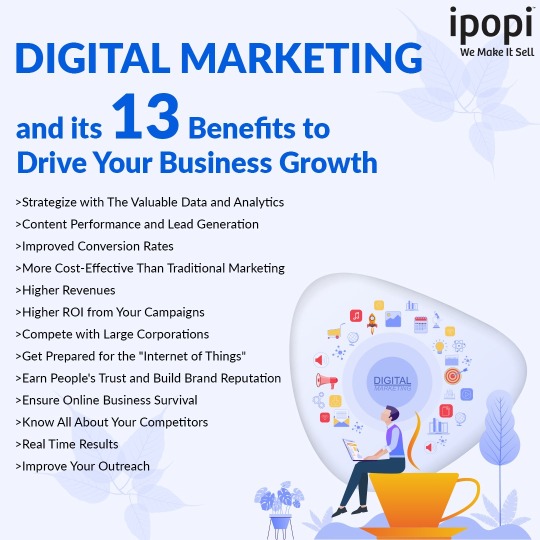
The benefits of digital marketing for the automotive industry include: –
Online reputation management can be enhanced through digital marketing.
Brand loyalty can be maintained through constant engagement on social media.
Digital marketing can help you dominate search engine results.
Keeping Customers engaged on social media helps brands to Build Customer Loyalty.
You can measure the results and outcomes of your digital marketing campaigns.
Through social media, digital marketing identifies potential influencers in the automobile industry.
Digital marketing helps to enhance online reputation management.
Constant customer engagement on social media helps to retain brand loyalty.
Digital marketing can help you dominate search engine results. Interested buyers search for potential automobile brands online using generic keywords.
From promoting content, Posting and Handling Social Media pages, Ipopi Ads can help you in digital marketing for businesses.
“ Ipopi Ads in Mysore are helping Automotive Brands like – KIA, Hyundai, Volkswagen, BMW, Benz, Toyota, Nissan, Honda, and TVS Brands in Digital Marketing”.
We will help your business grow by making you stand out from the crowd. We take the time to understand your business, objectives and goals before we set up anything. This helps us create a special strategy designed to match your needs that is dedicated to your success.
Ipopi ads – Top Digital Marketing Agency in Mysore.
We at Ipopi Ads – # 1 Digital Marketing Company in India are riding on the Digital Marketing swell and working with all our clients to help them work their Digital presence on a full scale.
Contact Us for more info!
How Important Is Digital Marketing in the Automotive Industry?
Although most vehicle purchases are still carried out in dealerships, the research that consumers conduct online beforehand is growing.
There is a vast amount of information online about products, including product specifications and customer reviews as well as comparisons between similar items from different manufacturers.
Consumers are exposed to marketing content throughout their buying process, and this exposure can impact the decisions they make before visiting a dealership.
Digital Marketing for the Automotive Industry enables business owners to easily promote their products and services, enabling them to be more competitive in the business.
Ipopi Ads provide Digital Marketing Strategies for Car Dealerships in India.
Why is Digital Marketing essential for the automotive industry?
Digital marketing is essential for automotive industries, as it allows them to keep up with the competition and stand apart from others. Ensure your branding extends to every aspect of your business.
The use of digital media is increasing over recent years. Consumers are more dependent on the internet when it comes to researching and purchasing products.
Though the actual purchases and sales happen in dealerships, the research is mostly done on the internet.
Digital marketing is a valuable tool in the automotive industry. It helps in generating new leads, enhancing and improving customer retention, brand recognition and value, as well as increasing purchases. Digital marketing gets the attention of customers and increases sales for companies in the auto industry.
Automotive Industries is a leader in innovation, technology and customer service. This puts the focus on digital marketing, where the customers can get access to new features and product availability.
Successful Digital Marketing & Effective Brand Building Helps in Greater Visibility, Enhancing Brand Awareness, Brand Differentiation, Increasing Engagement, Customer Loyalty, and Conversion Value and Product Value.
Ipopi ads – Best Digital Marketing Company in Mysore.
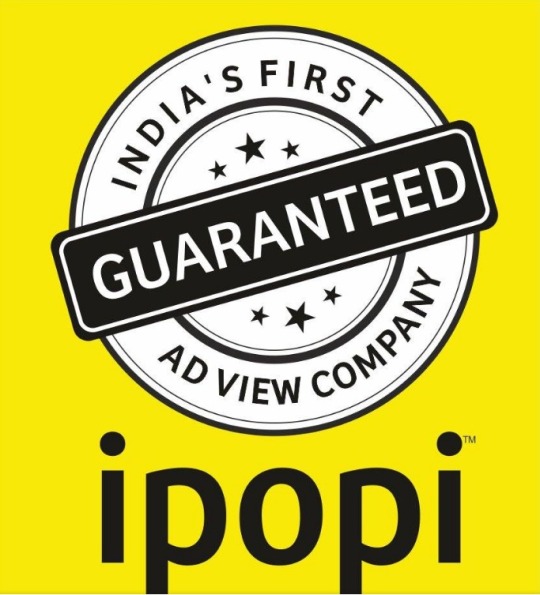
#marketing#branding#cars#graphic design#digital marketing#social media#social media marketing#social media management#automotive#automotive businesses#automotive industry#digitalmarketing#online marketing#internet marketing#best digital marketing company in mysore#top digital marketing agencies#top digital marketers in india#top digital marketing services#top digital marketing company in mysore#SEO#local seo#search engine optimisation services#google ads#google maps#google advertising#google adwords#facebook#instadaily#instalove#instagram
5 notes
·
View notes
Text
SEO for Auto Dealer
With a team of experienced professionals, we specialize in crafting compelling content that drives traffic and boosts conversion rates. Trust Logostek to provide tailored solutions that put your auto dealership ahead in the competitive market.
#Automotive SEO#Auto Dealership#Search Engine Optimization#Car Dealership SEO#Automotive Industry#Digital Marketing#Automotive Marketing#Dealership Websites#Automotive Sales
0 notes
Text
Camera Industry in 2024 :Trends, Segmentation and the Future Outlook
From capturing history-making moments to preserving precious memories, cameras have become an integral part of our lives. Fueling this visual storytelling is the ever-evolving camera market, encompassing a diverse range of technologies catering to everyone – from professional photographers to everyday users documenting their world. This blog delves into the current state of the market in 2024, analyzing its size, segmentation, key trends, and future outlook.
A Market with a Clear Focus on Innovation
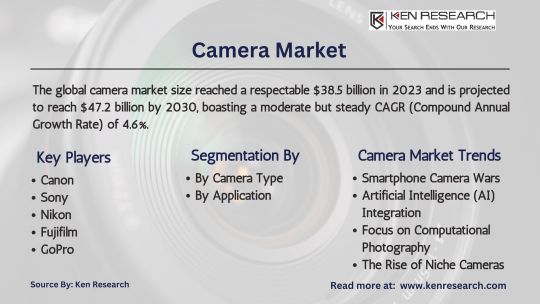
The camera industry is constantly pushing the boundaries of imaging technology. According to a report by Ken Research, the global camera market size reached a respectable $38.5 billion in 2023 and is projected to reach $47.2 billion by 2030, boasting a moderate but steady CAGR (Compound Annual Growth Rate) of 4.6%. This growth signifies the continued demand for high-quality cameras and the emergence of specialized applications.
Camera Market Segmentation: Capturing Diverse Needs
The camera market segmentation based on various factors, reflecting the diverse needs of users and the wide variety of camera types available:
By Camera Type:
Action Cameras: Perfect for capturing fast-paced action and extreme environments, these compact and rugged cameras are popular among athletes and adventure enthusiasts.
Digital Camera Market: This segment remains a significant part of the overall market, catering to both professional and amateur photographers. Within digital camera market segment, further sub-divisions exist:
Mirrorless Cameras: These compact and feature-rich cameras are gaining significant traction with professionals and hobbyists alike due to their versatility and image quality. The global mirrorless camera market is expected to reach $22.4 billion by 2030.
DSLR Cameras: While facing increased competition from mirrorless cameras, these workhorses are still favored by some photographers for their ergonomics and optical viewfinders. However, advancements in mirrorless technology may lead to a decline in the DSLR market share in the coming years.
Specialty Cameras: This segment encompasses various niche cameras catering to specific applications:
360-Degree Cameras: These cameras capture immersive, spherical images and videos, gaining traction for virtual reality applications and creating panoramic views.The global 360-degree camera market is expected to reach $3.1 billion by 2030.
Drone Cameras: The rapid growth of the drone industry has fueled the demand for high-quality, lightweight cameras specifically designed for aerial photography and videography.The global drone camera market size is projected to reach $11.2 billion by 2030.
Acoustic Cameras: These specialized cameras use sound waves to create visual representations of sound sources, finding application in leak detection, industrial inspection, and scientific research. While not a mainstream market segment, acoustic cameras are expected to experience niche growth in specific industries.
By Application:
Consumer Cameras: Aimed at casual photographers and smartphone camera upgrades, these cameras offer basic functionality and ease of use.
Professional Cameras: High-end, feature-rich cameras catering to professional photographers who demand exceptional image quality, performance, and durability.
Security Cameras: A booming segment driven by increasing security concerns, encompassing surveillance cameras for home and business use. The global body camera market share, a sub-segment of security cameras focusing on law enforcement applications, is expected to reach $15.7 billion by 2030.
Automotive Camera Market: This niche market focuses on cameras used in advanced driver-assistance systems (ADAS) and autonomous vehicles.The global automotive camera market size is estimated to reach a staggering $42.1 billion by 2030.
Camera Module Market: The Power Behind the Pixels
The camera module market is a vital component of the overall camera industry. These miniature modules integrate the core imaging components (lens, sensor, and processing unit) into a compact package, facilitating their integration into smartphones, drones, and other devices. The global camera module market is expected to reach a massive $68.4 billion by 2030, highlighting its significance in the broader camera ecosystem.
Take a look at: Digital Cameras Market Research Reveals Trends, Segmentation, and Future Outlook
Camera Market Trends: Redefining the Future of Imaging
Several trends are shaping the future of the camera market:
Smartphone Camera Wars: The relentless improvement of smartphone cameras is challenging dedicated cameras for casual photography, especially in the low- to mid-range market segment.
Artificial Intelligence (AI) Integration: AI-powered features like auto-focus, subject recognition, and automatic image enhancement are becoming increasingly common, enhancing user experience and photographic capabilities.
Focus on Computational Photography: Smartphone manufacturers are pushing the boundaries of computational photography, combining multiple images to create high-quality photos, even in low-light conditions.
The Rise of Niche Cameras: Markets for specialized cameras like action cameras and 360-degree cameras are expected to grow, driven by specific use cases and a growing interest in immersive content creation.
Top Players in Camera Market: Capturing Market Share
The camera industry is a competitive landscape with established players vying for dominance. Some of the top players in camera market include:
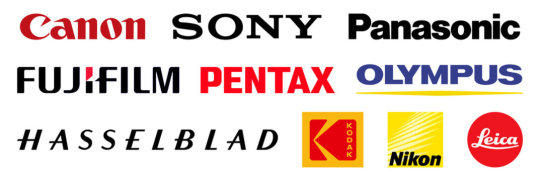
Canon : A leading manufacturer of professional and consumer cameras, lenses, and imaging solutions.
Sony : Renowned for its innovative mirrorless cameras and strong presence in the smartphone camera sensor market.
Nikon: A traditional powerhouse in the DSLR market, also offering mirrorless cameras and optical equipment.
Fujifilm: Known for its high-quality X-series mirrorless cameras and Instax instant cameras.
GoPro: A pioneer in the action camera market, offering rugged and versatile cameras for capturing adventure.
Camera Market Future Outlook: A Focus on Innovation and Niche Markets
The camera market future outlook suggests continued growth, albeit at a moderate pace.
Smartphone Competition: Smartphone manufacturers will continue to push the boundaries of camera technology, impacting the lower-end of the dedicated camera market.
Niche Market Growth: Markets for specialized cameras like action cameras, 360-degree cameras, and drone cameras are expected to experience significant growth.
Focus on Innovation: Camera manufacturers will need to continuously innovate and differentiate themselves through features like AI integration, advanced image processing, and high-resolution sensors.
Beyond the Lens: The Merging Landscape
An interesting trend is the blurring lines between smartphone cameras and dedicated cameras. Smartphone manufacturers are incorporating multiple lenses and advanced features, while camera manufacturers are exploring smartphone-like connectivity and user interfaces.
This convergence presents both challenges and opportunities for the camera industry. Companies that can successfully adapt and innovate will be well-positioned to capture a share of the evolving photography market.
Conclusion: A Click into the Future
The camera market is a dynamic and ever-evolving landscape. While the dominance of dedicated cameras for casual photography may be challenged by smartphones, the industry is adapting and innovating to cater to professional needs, niche markets, and the growing demand for immersive content creation. As technology continues to advance, the future of the camera market promises exciting new ways to capture and share the world around us.
You can also read about: Opportunities and Trends in the $6.83 Billion Digital Camera Market
#Camera Market#Camera Industry#Camera Sector#Camera Market Size#Camera Market Segmentation#Digital Camera Market#automotive camera market size#drone camera market#body camera market share#camera module market#mirrorless camera market#360 degree camera market#acoustic camera market#action camera market#Camera Market Trends#Top Players in Camera Market#Camera Market Future Outlook
0 notes
Text
#digital marketing for automotive industry#seo for automotive industry#automotive digital marketing#automotive digital marketing agency#automotive digital marketing companies#digital marketing for auto repair shop#digital marketing agency automotive industry#digital marketing for automobile industry#auto dealership digital marketing#digital marketing for car dealers#auto marketing agency#digital marketing auto dealers
0 notes